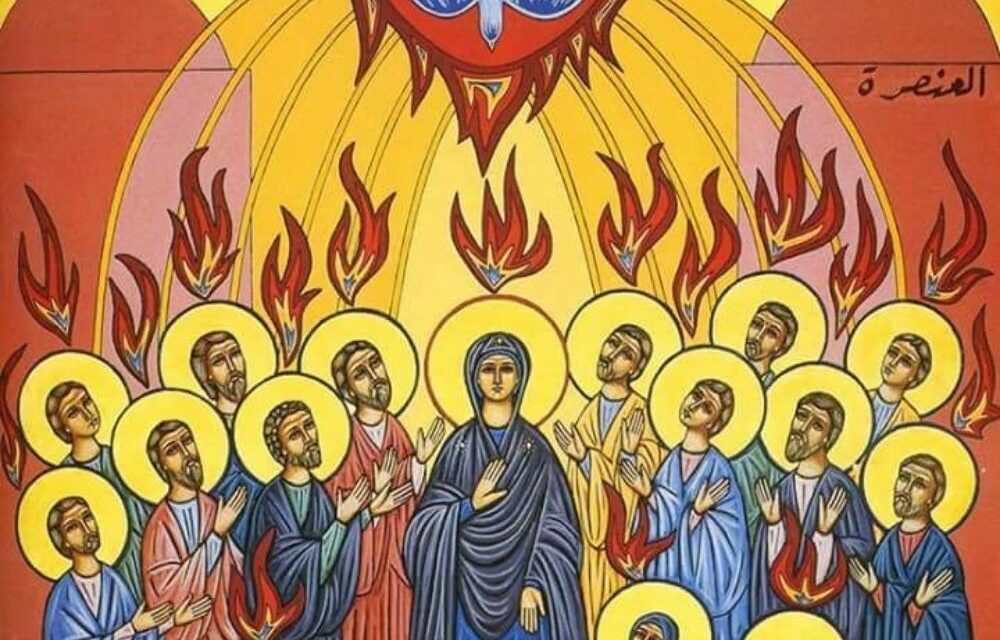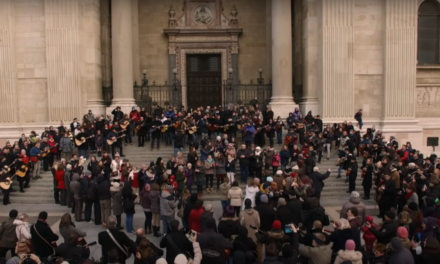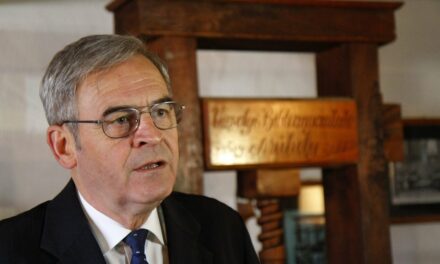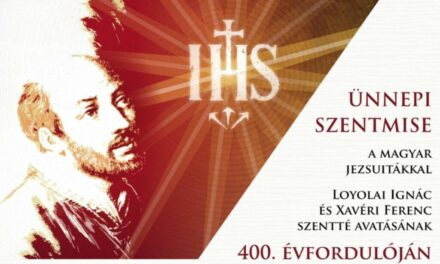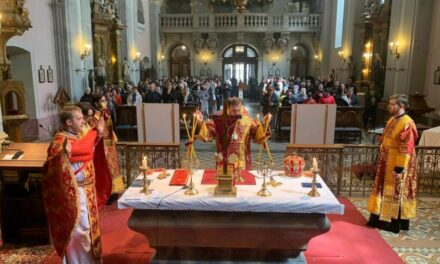Pentecost is one of the most important Christian holidays after Easter and Christmas, when the Christian world remembers the coming of the Holy Spirit.
The center of the Pentecost celebration is the scene described in the Bible, when the Spirit of God descended on the disciples gathered after the death of Jesus in the form of tongues of flame. The apostles then began to preach to the people of Jerusalem in different languages. As a result of the miracle, three thousand were converted and baptized in a single day.
Pentecost comes from the Greek word pentekosté, meaning "fiftieth", which clearly indicates that even the early Christians celebrated the coming of the Holy Spirit on the 50th day after Easter.
In AD 305, the church officially ordered the celebration of the coming of the Holy Spirit on the day of Pentecost.
Weeks after Jesus' death on the cross, his scattered followers gathered again in Jerusalem and elected the apostle Matthias among the twelve to replace the traitor Judas.
According to the Acts of the Apostles, "when the day of Pentecost arrived, they were all together in the same place. All at once there arose from the sky such a noise as if a violent gale was approaching, and it filled the house where they were sitting. Then tongues of flame appeared scattered to them and descended on each of them. They were all filled with the Holy Spirit and began to speak in different languages as the Spirit prompted them to speak. About this time there were religious men in Jerusalem from every nation under heaven. When this noise arose, a large crowd gathered. The shock was great because everyone heard them speaking in their own language." (Acts 2:1)
The liturgical color of Pentecost is red. At Pentecost, the priest celebrating mass wears red vestments and a stole. This happened because in the Catholic tradition, red is the color of the Holy Spirit. But red can also refer to martyrdom, which is why it also appears on Good Friday, Palm Sunday and the Feast of Martyr Saints.
The color red also appears strongly in the folk tradition of Pentecost. This is how the peony blooming around this time got its name, and this is where the Hungarian name "red Pentecost" comes from.
The day of Piros Pünkösd has been greeted with flowers for a thousand years in many European countries.
This day was commemorated in the churches every year, the tongues of flame were replaced with peony petals, and a white dove flew freely as a symbol of the Holy Spirit. The girls and women dressed in crimson dresses, with their braids twisted over their left shoulders according to tradition, the men put on their celebrants and the fun could begin. In some villages, the Pentecostal traditions and games are still alive today, in the Great Plains the Pentecostal Festival, in Transdanubia the Pentecostal Queen's Journey. Unfortunately, the Pentecostal king election has completely disappeared, although the saying lives on to this day: Short as the Pentecostal kingdom.
Source: Pünkösdinfó

